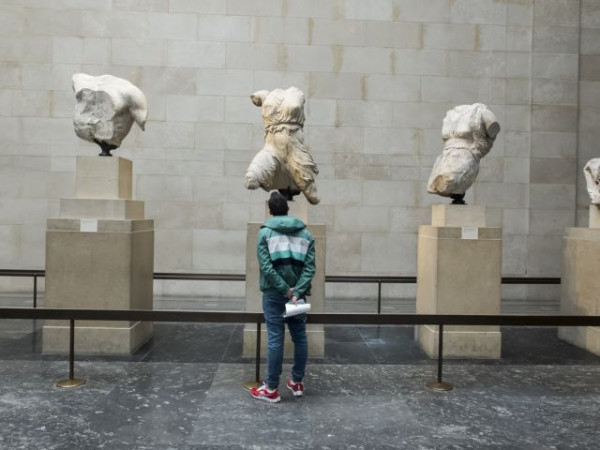
For a few months now, the issue of the return of the Parthenon Sculptures has acquired a special dynamic. In recent months, the density of reports in the British media is perhaps the highest ever. UNESCO’s proposal for direct bilateral talks between the British and Greek Ministries of Culture was accepted by the British government for the first time in the history of the Sculpture claim.
From Melina to Mitsotakis
“After Melina Mercouri’s global campaign in the 1980s for the return of the Parthenon Sculptures to Greece, the campaign continues today by the Greek Prime Minister.”
This is pointed out, among other things, in an extensive report by the ITV television network, which highlights the efforts of the Greek government for the reunification of the Sculptures. “Kyriakos Mitsotakis has raised the issue not only in his recent visit to London, but also in his speech to Congress, thus increasing the pressure on Britain,” ITV reports. At the same time, this report notes the growing support of both the British public and prominent figures in the art world.
Following the Greek Prime Minister’s visit to London in November, where he raised the issue with his British counterpart, Boris Johnson, the Greek position seems to be constantly gaining new important supporters. Most characteristic of all is perhaps the change of “line” of the Times of London, which have now been in favor of the return of the Sculptures to Greece. The British newspaper changed the line “after 50 years” as it points out in the main article of January 11. “Artists and politicians have been arguing for many years that these works of art should be returned to Greece. The museum and the British government, with the support of the Times, resisted the pressure. But times and conditions are changing. The sculptures belong to Athens. Now they have to return,” the British newspaper stressed.
“They belong to Greece,” say 59% of Britons
The strong momentum that has developed in favor of the Greek position is also reflected in the polls. So in the last one conducted by the company YouGov, 59% of the British answered that they believe that the Sculptures “belong to Greece”. Only 18% said the opposite while 22% of respondents said they had no opinion.
But also leading figures in the United Kingdom are now publicly, much more often, in favor of the reunification of the Sculptures.
Among them is one of the most famous British directors, Ken Loach, who recently made it clear, once again, that in his view the sculptures are stolen and must be returned to Greece immediately. “One detail that shows the thieves’ arrogance is that in Britain they call them Elgin Marbles. And this is the thief. The idea that we, not us, those in power are so unconscious of their crime that they call their loot by the name of man stole them, says it all about the arrogance of the imperialists. The Parthenon Sculptures should of course be returned immediately. “Everyone with a sane mind understands this,” said the award-winning director.
Top personalities in favor of the return
Steven Fry, the distinguished British actor and writer who for many years has been in favor of the return of the Sculptures in Greece, a few days ago repeated in an interview that the British no longer have any substantial argument. “Imagine the Americans’ ‘buying’ the Eiffel Tower from the Germans in 1941 and after the liberation of France in 1945 claiming that because we bought them from the Nazis, it is now ours. “It’s outrageous,” Fry told ITV. Clarifying at the same time, that “the Parthenon is far more important for Athens than it is the ‘Eiffel tower for the Parisians”.
At the same time, Edith Hall, a professor of classical studies and ancient history at Durham University, said: “Most people around the world simply do not understand the British Museum’s arguments. They sound outdated, as if they belong to the 19th and not to the 21st century “.
As a British journalist who has been dealing with the issue for years finally stressed to Greek news agency AMNA, “if the pressure of the respective Greek government continues methodically and persistently, then it is certain that at some point the Sculptures will return to Greece”.
Latest News

Capital Link Forum Highlights Greece’s Economic Resurgence; Honors BoG Gov Stournaras
Capital Link Hellenic Leadership Award recipient, Bank of Greece Gov. Yannis Stournaras, an ex-FinMin, was lauded for his pivotal role during Greece’s economic recovery

Tourist Spending in Greece Up by 14%, Visa Card Analysis Shows
Greece’s capital Athens emerged as the most popular destination, recording a 17% increase in transactions with Visa cards, surpassing even the cosmopolitan island of Mykonos.

Inflation in Greece Unchanged at 2.4% in Nov. 2024
The general consumer price index (CPI) posted a 0.4% decrease in November compared to the previous month

2024 Christmas Holidays: Extended Shop Hours Schedule
The 2024 Christmas Holidays extended shop hours schedule commences on Thursday, December 12 and runs until the end of the year.

ELSTAT: Seasonally Adjusted Unemployment Down in October
The number of employed individuals reached 4,284,694, an increase of 67,723 compared to October 2023 (+1.6%) and 22,002 compared to September 2024 (+0.5%).

Greek PM’s Chief Economic Adviser Resigns
In the post on his Facebook page, Patelis did not disclose the reasons that led him to step down.

“Masdar Invests in the people of Greece and in the vision of TERNA ENERGY”
Four messages from the CEO of Masdar, the Arab renewable energy giant, after its acquisition of 70% of TERNA ENERGY

Lloyd’s List Greek Shipping Awards 2024: Honors for leading companies and personalities in the Greek shipping sector
20 awards presented at the 21st annual Lloyd's List Greek Shipping Awards

Syria’s Bashar al-Assad, His family Granted Asylum by Russia
Reuters also reported that a deal has been struck to ensure the safety of Russian military bases in the war-ravaged country

Greece to Introduce Artificial Intelligence into Its Education System
Currently, Greece is taking its first steps to bring AI into classrooms through the AI4edu program, which is being co-funded by the European Union















![Χειμερινή εξοχική κατοικία: Οι Ελληνες γυρνούν την πλάτη παρά την πτώση των τιμών [γραφήματα]](https://www.ot.gr/wp-content/uploads/2024/12/Capture-19-90x90.jpg)










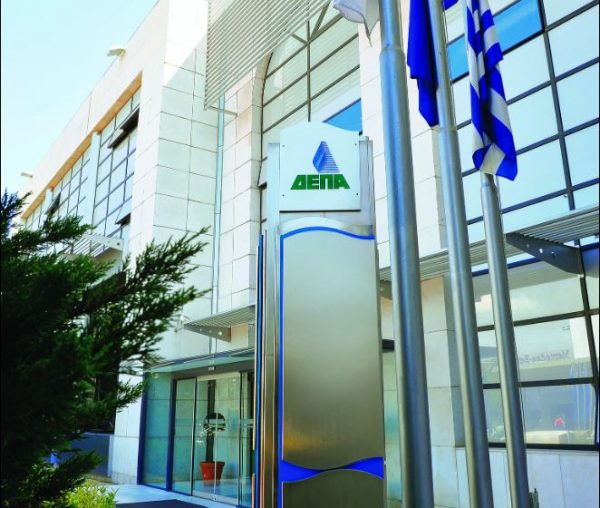
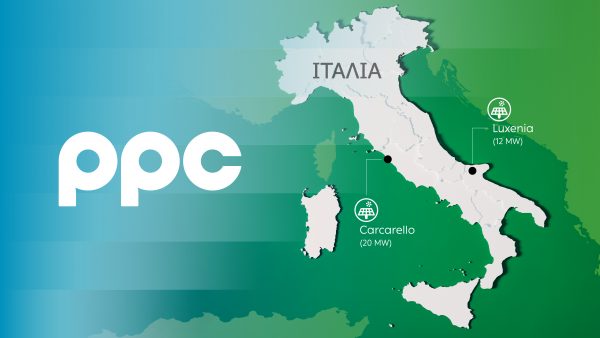
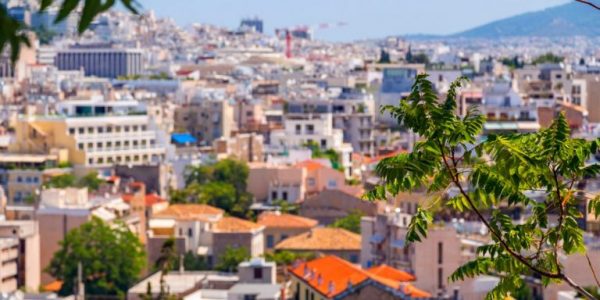



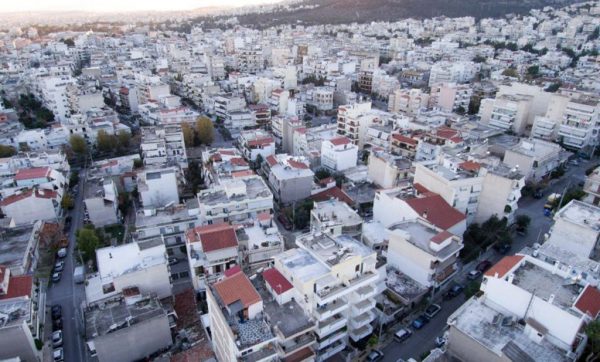

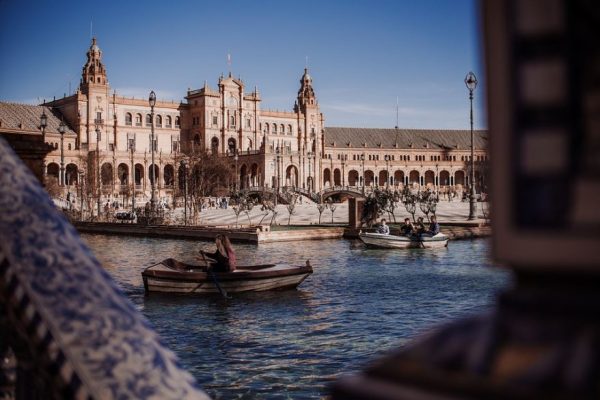






 Αριθμός Πιστοποίησης Μ.Η.Τ.232433
Αριθμός Πιστοποίησης Μ.Η.Τ.232433